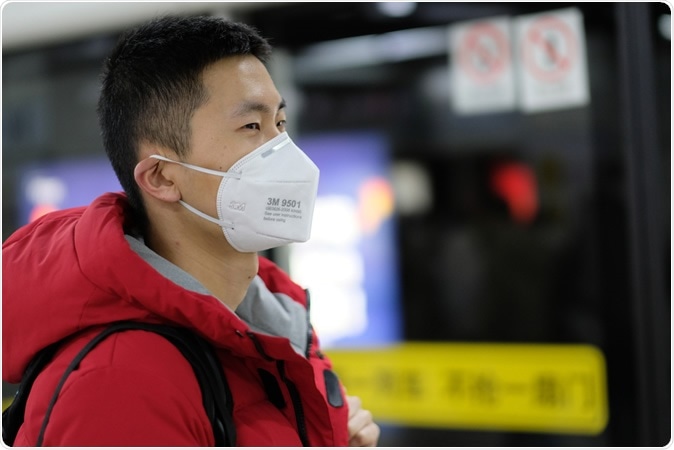As the number of coronavirus disease (COVID-19) cases spike over the past few days outside China, the World Health Organization (WHO) warns that the world must prepare for a potential pandemic.
Though the WHO does not classify the current coronavirus as a pandemic yet, it warns everyone to be cautious and prepare for a possibility.
WHO Director-General Dr. Tedros Ghebreyesus said the spread of the virus across the globe is not yet a pandemic stage, but it has the potential to become one.
There are many factors the health organization has to consider dubbing a disease outbreak a pandemic, including the geographical spread of the virus, the severity of the disease it causes, and the impact it has on the whole of society. Dr. Tedros added that there is no large-scale severe disease or death, and there is no uncontained global spread of the virus.
"Does this virus have pandemic potential? Absolutely, it has. Are we there yet? From our assessment, not yet," Dr. Tedros explained.

Shanghai/China-Jan 2020: Man wearing face mask for protection against coronavirus COVID-19. Image Credit: Robert Wei / Shutterstock
What is the current coronavirus situation?
The WHO said that the current situation is a reason for concern. There is a sudden spike of cases and deaths in South Korea, Italy, and Iran.
As of writing, there are 80,146 coronavirus cases, while there are 2,699 deaths, the majority of whom were from Hubei province in mainland China. Though there is a continued decline in cases in China, the situation in other countries is different.
South Korea has a total coronavirus case toll of 893, with eight deaths. Iran has 61 cases, with 12 deaths, and Italy has 229 cases, up from 155 in just 24 hours. Italy has also reported seven deaths.
In other parts of the world, Japan reports 159 coronavirus cases, followed by Singapore with 90, Hong Kong with 81, Thailand with 35, Taiwan with 30, Australia and Malaysia with 22 cases, and Germany and Vietnam with 16 cases. The United States reported 53 cases, up from just 35 one day ago.
Though the other countries report a small number of cases, the possibility of the coronavirus spread is possible.
For instance, new countries have reported cases of the deadly virus, including Spain, Oman, Afghanistan, Kuwait, Bahrain, Nepal, Israel, and Sweden. Meanwhile, of the nearly 80,000 cases, 27,657 have already recovered.
What should be done?
The WHO urges everyone to be cautious and vigilant, as the world prepares for the potential of a pandemic. Preparedness is the key to battling the coronavirus disease (COVID-19) outbreak.
"This is a time for all countries, communities, families, and individuals to focus on preparing. We do not live in a binary, black-and-white world. It's not either-or. We must focus on containment while doing everything we can to prepare for a potential pandemic," Dr. Tedros said.
"There is no one-size-fits-all approach. Every country must make its own risk assessment for its own context. WHO is also continuing to do its own risk assessment and is monitoring the evolution of the epidemic around the clock," he added.
The WHO focuses on three major priorities amid the coronavirus outbreak – protection of healthcare workers, protection of people at most risk, and protection of vulnerable countries.
Healthcare workers are the front liners of the current outbreak. For instance, in China, thousands of doctors and nurses contracted the infection, posing a high risk for their health.
Also, vulnerable populations should be protected against the infection, including the elderly and those with underlying health conditions. Seniors are at the highest risk of complications tied to the new disease.
Lastly, WHO wants to prioritize countries that are most vulnerable to the impacts of the coronavirus disease outbreak, especially those who cannot contain epidemics, countries with weak healthcare systems are at the highest risk of a catastrophic outbreak.
"This is a shared threat. We can only face it together, and we can only overcome it together. When we act together – countries, regional and global health organizations, the media, the private sector, and people everywhere – our collective strength is formidable," Dr. Tedros said.